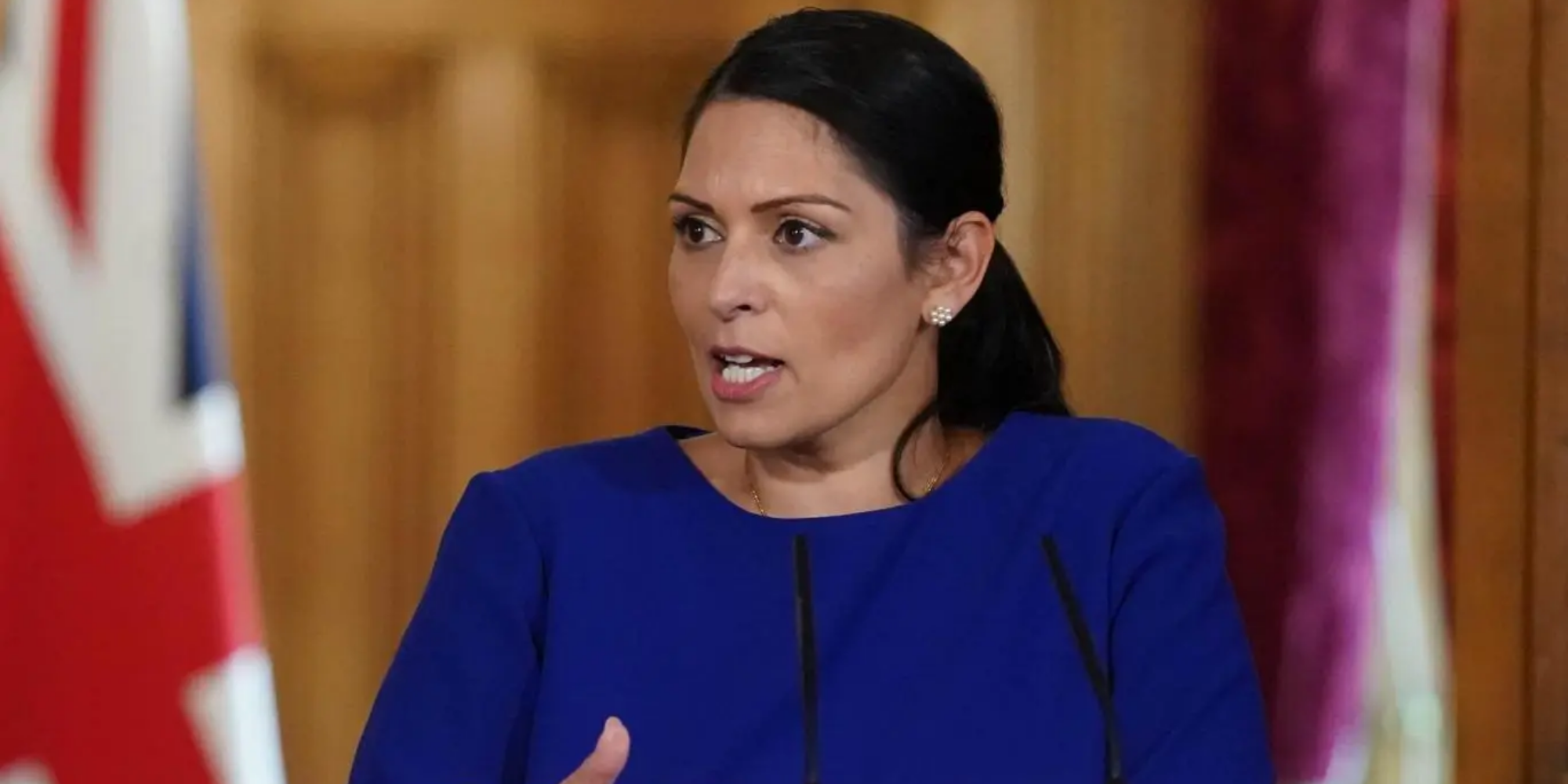As we await a report into bullying allegations, is Priti Patel another suitable case for a mild telling-off?
The home secretary and Jeremy Corbyn are both in trouble with their party leaders, but as John Rentoul writes, they are being treated differently


There are unexpected parallels between the disciplinary cases of Priti Patel, the home secretary, and Jeremy Corbyn, the former Labour leader. Both face mild reprimands; both are too proud to apologise; and each has caused a big political problem for their party leader.
It was reported yesterday that Boris Johnson is close to publishing the report that was completed months ago into allegations of bullying against Patel, and that he is likely to issue her with a written warning while keeping her in the cabinet.
This is rather similar to the decision of the disciplinary panel of the Labour Party, which ended Corbyn’s suspension and issued him with a “reminder”. That is where the similarity ends, however, because Keir Starmer took a different approach from the party machine and kept Corbyn out of the Parliamentary Labour Party (PLP).
This was despite suggestions that there was a possible deal between Corbyn and Starmer to allow him back not just into the party but into its parliamentary caucus. If there had been a deal, it would have required Corbyn to apologise for the mistakes that led to the finding of the Equality and Human Rights Commission (EHRC) that the party had been guilty of unlawful discrimination under his leadership.
But it turned out that Corbyn is too proud to apologise for something he does not believe to be his fault, and so has prolonged the crisis that ensures – I think – that he will never be allowed back into the PLP.
Patel is a proud politician too, and it was striking that the Financial Times reported that she is expected to be issued not just with a warning but with a “request for an apology”. In other words, that deal has not been done either.
It may yet be, of course. We may find, when the report is eventually published, that Patel does apologise. The prime minister and the home secretary have not reached that stage of their negotiations, it would seem, although Johnson has weakened his bargaining power by appearing to suggest that she will stay in the cabinet. He does still have some leverage, because it is not clear whether she is going to stay as home secretary, or be moved in the next reshuffle, increasingly expected in the new year.
The big difference, though, is that Johnson wants to keep Patel. She is an important guarantor of the government’s image as being “tough” on immigration – despite her apparent inability to stop people crossing the Channel in dangerous inflatables – and a counterbalance to Johnson’s own reputation as a pro-immigration former mayor of London. Opinion polls suggest that she is unpopular with the general public, but she is highly regarded by Tory party members, ranking fifth in the cabinet in the most recent Conservative Home survey.
Starmer, on the other hand, wants Corbyn “nowhere near the Labour Party”, as he put it in his statement on the publication of the EHRC report – although he was talking in general terms about “those who think there’s no problem with antisemitism in the Labour Party”. I think Starmer would have been prepared to let Corbyn stay, or to allow him to return, if the former leader had made a convincing show of contrition, but it was Corbyn who chose his path.
Now, finally, we come to the last similarity between the two cases. Delay is likely to be the management technique deployed by both Johnson and Starmer. In Johnson’s case, he has waited nine months since Sir Philip Rutnam resigned as home office permanent secretary, accusing Patel of “swearing, belittling people, making unreasonable and repeated demands”.
The investigation by the civil service into these and other allegations was completed some time ago, but the prime minister has fended off demands for publication. But he cannot do so for ever, and seems to have decided that now – or soon – is the time to get it out of the way.
It is now Starmer’s turn to delay. I suspect little will happen about Corbyn’s case for some time, despite the sound and fury from the Socialist Campaign Group of MPs – some of whom are privately irritated that Corbyn’s stubbornness is forcing them to marginalise themselves even further. When the independent disciplinary procedure is set up, an EHRC recommendation Starmer has promised to act on in the new year, Corbyn will no doubt be referred to it by more than one complainant. Those independent processes will no doubt continue for months, if not years, but in the meantime, Corbyn is most unlikely to be readmitted to the parliamentary party.

Join our commenting forum
Join thought-provoking conversations, follow other Independent readers and see their replies
Comments